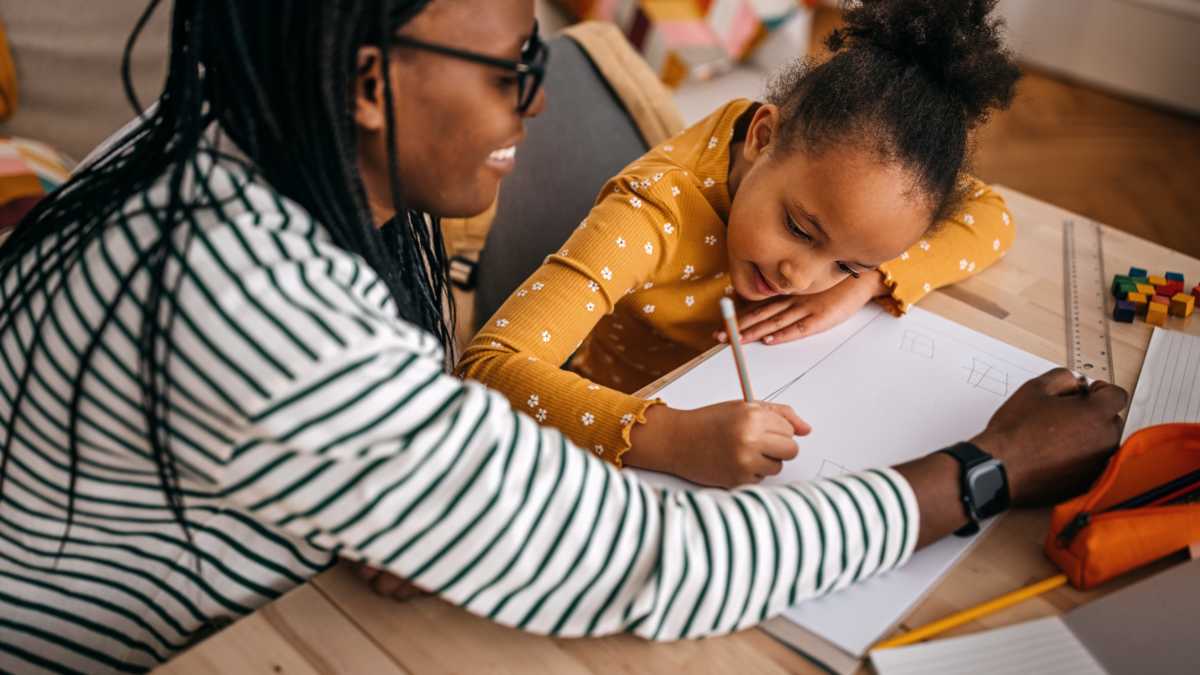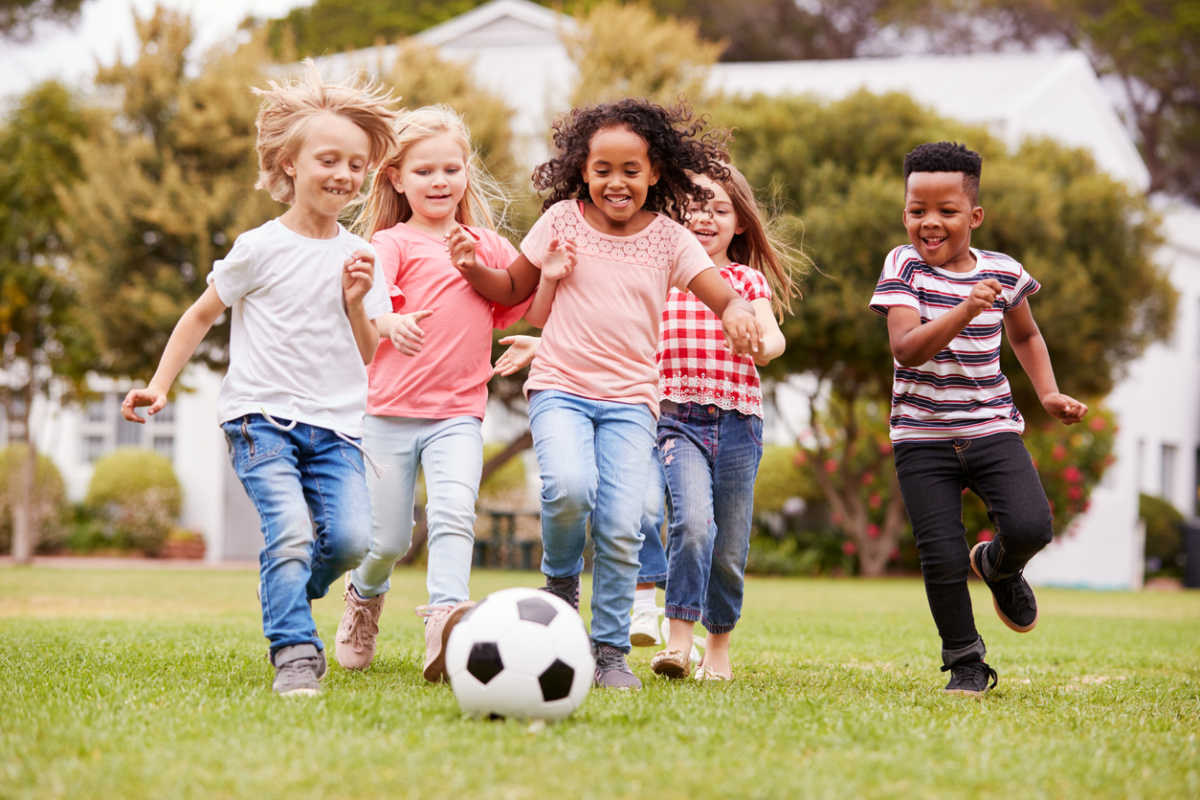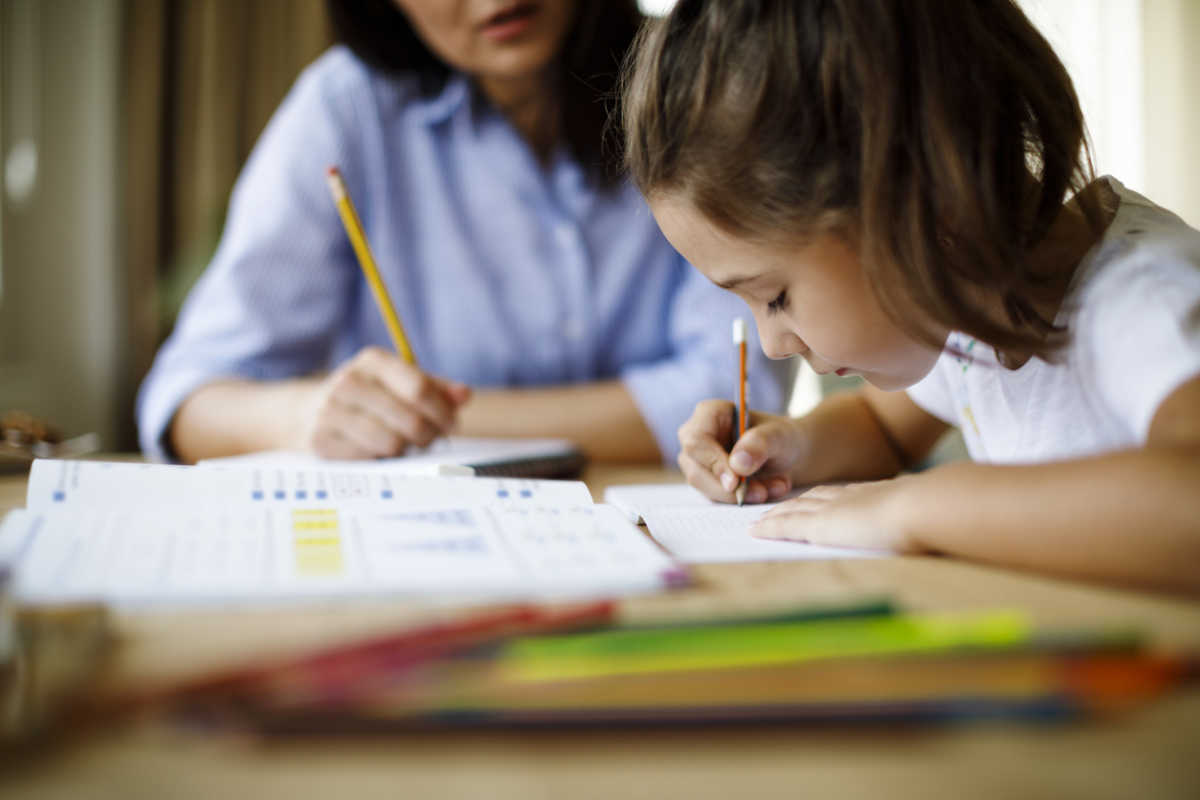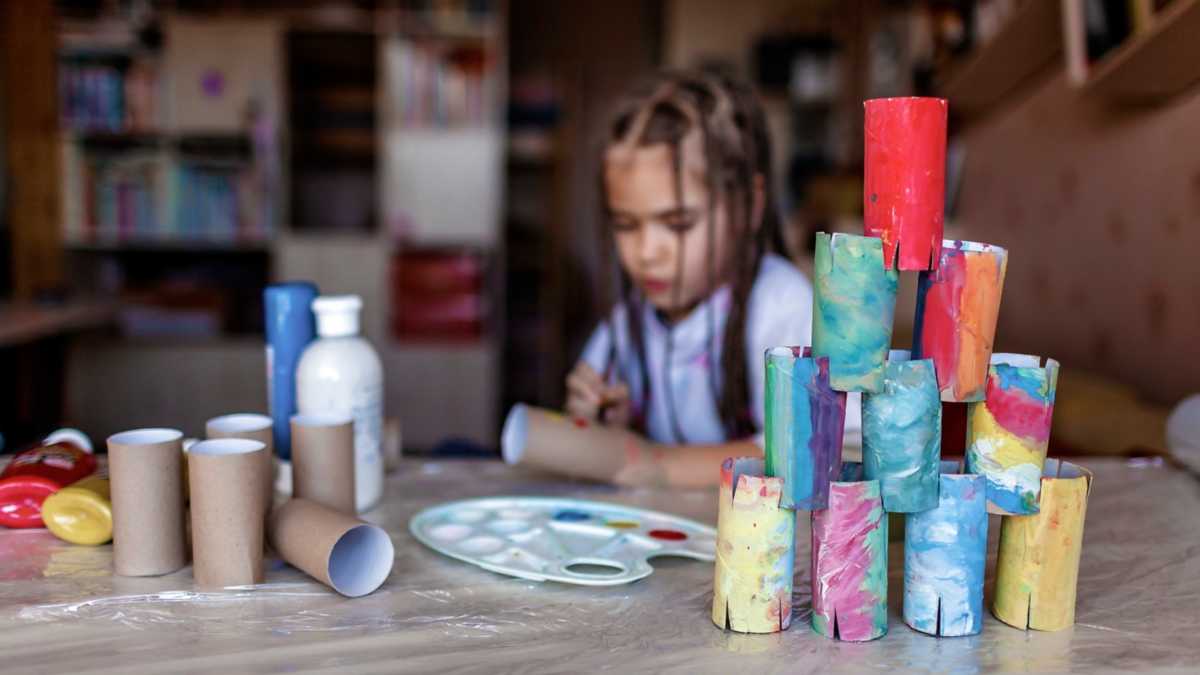Some elementary schools have begun to adopt a no-homework or minimal-homework policy as the new school year begins, and the Tampa Bay Times ran a story about Pasco County middle and high schools reporting that “to better align grades to children’s learning, the school district told teachers that homework assigned for students to practice what they were taught in class may not be included in their report card marks.” [T]he school district told teachers that homework assigned for students to practice what they were taught in class may not be included in their report card However, homework is still a thing, and parents need to find a way to strike a balance between letting their children have fun after school and making sure they complete their tasks so that their children can continue to be children without becoming overworked.
Jody LeVos, who holds a PhD and is the chief learning officer at BEGiN, has spent the better part of a decade overseeing the creation of curricula and play-to-learn products (including digital apps, toys, books, and movies), as well as designing early learning experiences for children and families. She also designs early learning experiences for children. She has previous experience working for firms such as LeapFrog, VTech, KidKraft, Mattel, and HOMER, which are all well-known in the fields of educational technology, children’s media, and toy manufacturing.
She is returning to school like the rest of us despite being a mother to two sons, the eldest of whom is 14 and the younger of whom is 11.
“Not even having a PhD in child development prepares you for motherhood quite like, well, motherhood,” LeVos shares with LittleThings.
However, she does offer sage counsel that other mothers and fathers might utilize while planning their weekdays.
To begin, she raises the alarming point that play is seeing a steady decrease, which is a problem in and of itself. She goes on to explain that “some researchers have stated that youngsters, on average, have lost 12 hours of play every week.” [Citation needed] “The decline in play is happening in both homes and schools, and this reduction has been attributed to many factors, including increases in concern for safety, therefore fewer children playing outside in neighborhoods; time spent engaging in structured activities such as organized sports; time spent on screens (which, of course, can also be playful); budget cuts and policy changes impacting recess and physical education time in schools; and an emphasis on academic skills beginning young. “The decline in play is happening in both homes and schools, and the reasons for this reduction have been
LeVos continues by saying, “Many researchers today believe that decreased time spent playing is related to increased rates of anxiety and depression; delays in, or impacts to, social-emotional skills such as self-regulation and collaboration; effected fine and gross motor skills; obesity and other markers of physical health; and even cognitive skills such as executive functioning skills and problem solving.” LeVos says that “many researchers today believe that decreased time spent playing is related to increased rates of anxiety and depression.” To put it another way, there is the possibility of quite significant fallout from limiting access to play.
In light of this, parents need to decide whether they should immediately let their children play or get them started on their homework as soon as they get home from school. LeVos recommends that parents try out different approaches to discover which ones are most successful with their children. Because it offers children the opportunity to decompress after a busy day before they need to focus on chores that may feel less pleasant, having protected playtime after school and before homework is helpful for some families.
This is because it gives children the opportunity to play after school. This arrangement will not work for some families because their children may have difficulty transitioning from time spent playing to time spent on activities that require greater concentration, such as schoolwork. You are free to explore in this space to find out what works best. You might also discover that certain kinds of play make more sense at different times of the day, and that’s just fine as well! The last thing that parents can do is seek for methods to incorporate playtime into times when the child might not expect it, such as while they are riding in the car or while they are taking a bath.
What happens if your child is young and already has a full load of schoolwork? According to LeVos, “If you’ve seen that your child’s homework is taking up their after-school hours and preventing them from having free time to play, you can discuss this with your child’s teacher.” The majority of people who work in early childhood education are aware of the crucial significance of play and are interested in finding out if play is being impacted at home. They might collaborate with you to establish which portions of the assigned homework should receive more attention and which should be set aside so that your child has more time to play.
According to LeVos, play is an important component of early childhood education. “Children learn valuable skills through play, including how to problem-solve, rehearse roles and communication tactics, experiment, act out things that are bothering them, and act out things that they are curious about in the world around them. Free play is particularly crucial for fostering creativity, whereas guided play is particularly necessary for ‘knowledge’ areas such as mathematics, science, and logic.
Both types of play have their place.”
In a similar vein, she asserts that there is a point to every form of play. “One of the fundamental ways in which young children learn about, engage with, and experiment with the world around them is through the medium of play. Children are able to experiment with different personas, explore their limits and boundaries, take risks in a controlled environment, interact with others, gain insights, and act out how they are feeling as they play.
She goes on to expand by saying, “Children that are engaged in play will typically be seen smiling, laughing, or displaying other forms of pleasant affect.” That isn’t to suggest that there aren’t any problems or conflicts that come up when playing – there most certainly are! But in general, the spirit of play is one that is both enjoyable and constructive. Play is engaging. In a manner analogous to that of joy, participation highlights the beneficial aspects of the event.
In addition, involvement is also indicative of a level of focus, which is a significant component that helps define what play is. When children are engaged in play, they are not readily distracted and are completely focused on the activity at hand.
“In the psychological literature,” LeVos points out, “researchers characterize ‘flow’ as an approximate equivalent: Adults who are intensely immersed in something they enjoy frequently lose all track of time as well as other things that are going on around them.” The act of playing may appear to have no objective, but of course, it does. In most cases, people engage in play for its own sake rather than for the purpose of giving evident survival benefits such as food or shelter. But despite the fact that a youngster may not be conscious at all that they are participating in something that is ‘good for them,’ play nevertheless possesses an enormous amount of value.
Improvisation is a vital part of play. When youngsters play, they frequently experiment with taking on new roles and coming up with new stories as they go. They typically do not adhere to any strict guidelines or predetermined standards; in fact, there are occasions when they don’t even act like themselves since they adopt a variety of guises and identities.
To play is not something reserved solely for children. “”Playing has positive effects on people of all ages,” adds LeVos. Play is something that is observed in a great number of other mammals, and it is believed to be an important component of the human experience at all stages of life, despite the fact that we commonly believe that play is something that only relates to children.
It has been argued that work is not the opposite of play; rather, despair is the opposite of play. Play is essential to the growth and development of young children and is expected to continue to be beneficial throughout the lifespan, despite the fact that the manner in which we play shift as we get older.”
To summarize, you can relax knowing that it is acceptable to reduce the amount of unassigned study time because your child is gaining knowledge necessary for leading a healthy life when they are playing.




